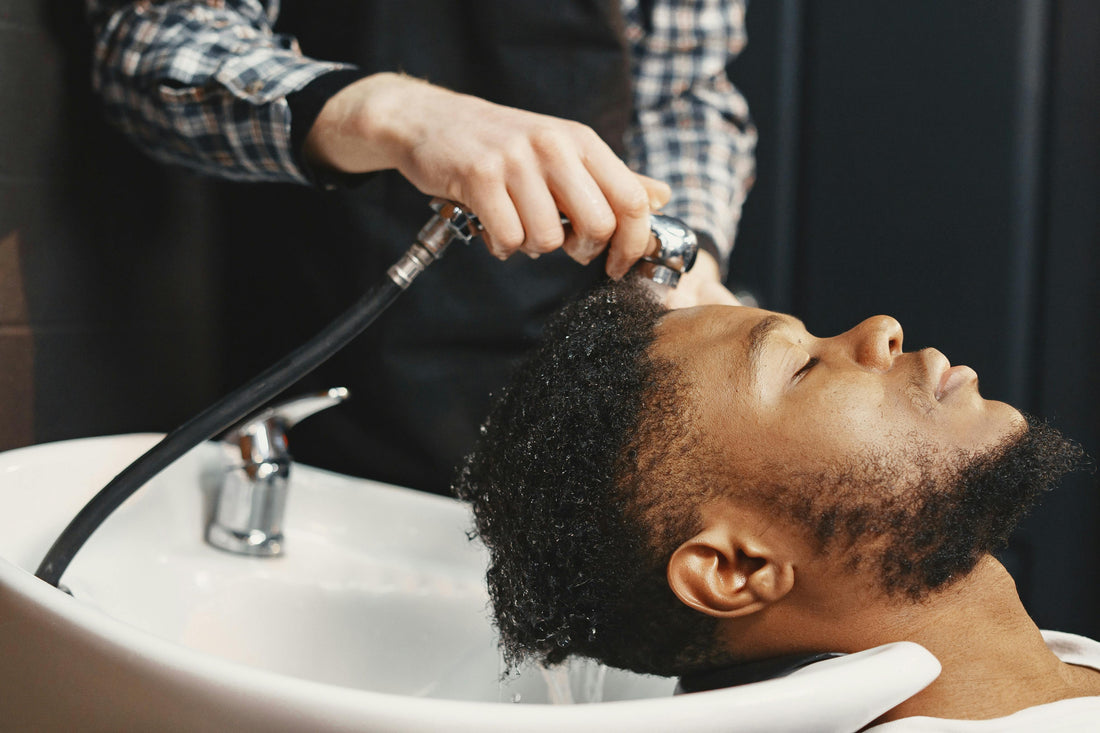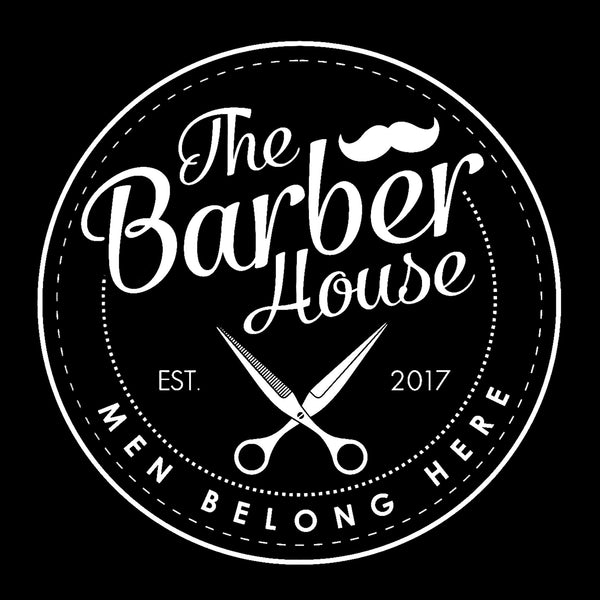
Keratin vs Protein Treatments: The Ultimate Guide to Stronger, Healthier Hair
Share
Hair care can be complex and confusing, especially regarding specialized treatments. Two popular options that often confuse are keratin and protein treatments. While both aim to improve hair health and appearance, they work differently and offer distinct benefits.
In this comprehensive guide, we'll dive deep into keratin and protein treatments, exploring their similarities and differences and how to choose the right option for your hair.
Understanding Keratin: The Hair's Building Block
Keratin is a fibrous protein that forms the main structural component of hair, nails, and the outer layer of skin. In hair specifically, keratin makes up an impressive 65-95% of the total structure, depending on hair type, ethnicity, and overall health.
The importance of keratin in hair cannot be overstated:
- It forms the hair shaft's cortex, which is responsible for strength and elasticity
- It composes the outer cuticle layer, protecting the inner structure and contributing to shine and smoothness
Unfortunately, various factors can decrease the natural keratin content in our hair:
- Heat styling: Excessive use of hot tools can break down keratin proteins
- Chemical treatments: Coloring, bleaching, and perming can strip keratin from the hair shaft
- Environmental stressors: Sun exposure, pollution, and harsh weather conditions can degrade keratin over time
- Poor nutrition: A diet lacking in protein and essential nutrients can impact keratin production
- Aging: As we get older, our bodies naturally produce less keratin
Understanding keratin's role in hair health is crucial when considering treatments that restore and enhance this vital protein.

Protein Treatments: The Evolution of Hair Care
While keratin is a specific type of protein, "protein treatments" in hair care often refer to a broader category that may include keratin and other proteins and amino acids. These treatments represent a more holistic approach to addressing hair damage and weakness.
Protein treatments are designed to supplement and reinforce the hair's natural protein structure by:
- Strengthening hair from within: Smaller protein molecules can penetrate the hair shaft, reinforcing its internal structure.
- Improving elasticity: Certain proteins can enhance the hair's ability to stretch without breaking.
- Increasing moisture retention: Some proteins help the hair retain moisture more effectively.
- Enhancing shine and smoothness: By filling in gaps in the hair cuticle, protein treatments can improve overall appearance
Combining keratin with other proteins and amino acids offers a multi-faceted approach to hair repair and protection, simultaneously addressing various aspects of hair health.

Keratin Treatments: Smooth, Sleek, and Straight
Keratin treatments have gained immense popularity, particularly among those seeking to tame frizz and achieve smoother, straighter hair. The primary purpose is to smooth and straighten the hair by infusing it with keratin protein.
Key benefits of keratin treatments include:
- Reduced frizz: Keratin helps to seal the hair cuticle, minimizing frizz and flyaways
- Easier styling: Treated hair often becomes more manageable and requires less time to style
- Increased shine: The smoothing effect can enhance the hair's natural luster
- Temporary straightening: For those with wavy or curly hair, keratin treatments can provide a straighter appearance
However, it's important to note potential drawbacks:
- Formaldehyde concerns: Some treatments contain formaldehyde or formaldehyde-releasing compounds. Always choose formaldehyde-free options.
- Hair breakage: If not applied correctly or if the hair is overprocessed, keratin treatments can lead to damage.
- Greasy scalp: The treatment can sometimes leave the scalp feeling oily or weighed down.
- Loss of volume: While hair becomes smoother, some people find it loses natural volume.
Given these potential issues, it's crucial to use high-quality keratin products and have the treatment performed by a skilled professional.

Protein Treatments: Rejuvenate, Restore, and Revitalize
Protein treatments offer a different approach to hair care, focusing on rejuvenating and restoring hair health, particularly for those dealing with damage, weakness, or excessive protein loss.
Key benefits of protein treatments include:
- Strengthening damaged hair: By filling in gaps in the hair shaft, protein treatments can help repair and prevent further damage
- Improving elasticity: These treatments can enhance the hair's ability to stretch and bounce back, reducing breakage.
- Enhancing moisture retention: Some proteins help the hair retain moisture more effectively.
- Stimulating hair follicles: Certain protein treatments may help promote healthier hair growth
- Balancing protein levels: These treatments can help stop the production of "bad" proteins in the hair.
One significant advantage of protein treatments over keratin treatments is their versatility. They're suitable for all hair types and can be particularly beneficial for:
- Color-treated hair
- Heat-damaged hair
- Chemically processed hair
- Naturally fine or weak hair
Additionally, protein treatments typically don't involve harsh chemicals or high heat, making them a gentler option for those concerned about potential damage.
Choosing Between Keratin and Protein: What's Right for You?
Deciding between a keratin treatment and a protein treatment depends on various factors:
Hair Type and Texture
- For curly or frizzy hair seeking a smoother, straighter look, consider keratin
- For fine, damaged, or over-processed hair seeking strength and health, opt for protein
Desired Results
- For long-lasting smoothness and frizz control, keratin typically offers more dramatic results
- To repair damage and improve hair health without altering the texture, choose protein
Treatment Frequency
- Keratin treatments generally last 3-6 months
- Protein treatments can be done more frequently, some suitable for monthly use
Chemical Sensitivity
- If you're sensitive to chemicals, protein treatments are generally safer
Budget
- Keratin treatments tend to be more expensive and time-consuming
It's worth noting that keratin and protein treatments are not mutually exclusive. Many professionals recommend incorporating both into your hair care routine for optimal results.
Set aside enough time for the process regardless of which treatment you choose. Keratin treatments, in particular, can take several hours.
It's crucial to avoid cheap, low-quality treatments. Invest in high-quality treatments performed by skilled professionals to ensure the best outcome for your hair.
Conclusion: Making the Right Choice for Your Hair
As we've explored, keratin and protein treatments offer unique benefits for your hair. While protein treatments focus on strengthening and repairing, keratin treatments excel at:
- Smoothing and straightening
- Providing long-lasting frizz control
- Improving manageability
- Creating a sleek, polished look
For those seeking the transformative power of keratin, The Barber House offers professional Keratin Straightening Treatments. Our expert stylists use top-quality products and techniques to give you the smooth, manageable hair you've always wanted.
Refrain from settling for frizzy, unmanageable hair. Let our professionals help you unlock the secret to smoother, healthier, and more beautiful hair with our signature keratin treatments. Book your appointment now and take the first step towards the hair of your dreams!
